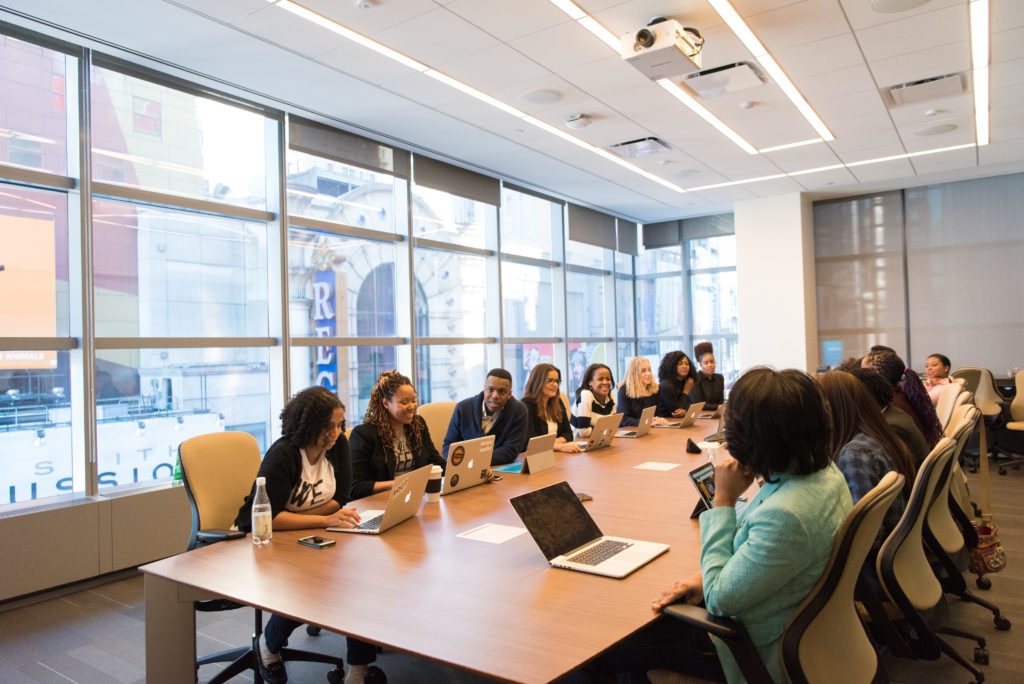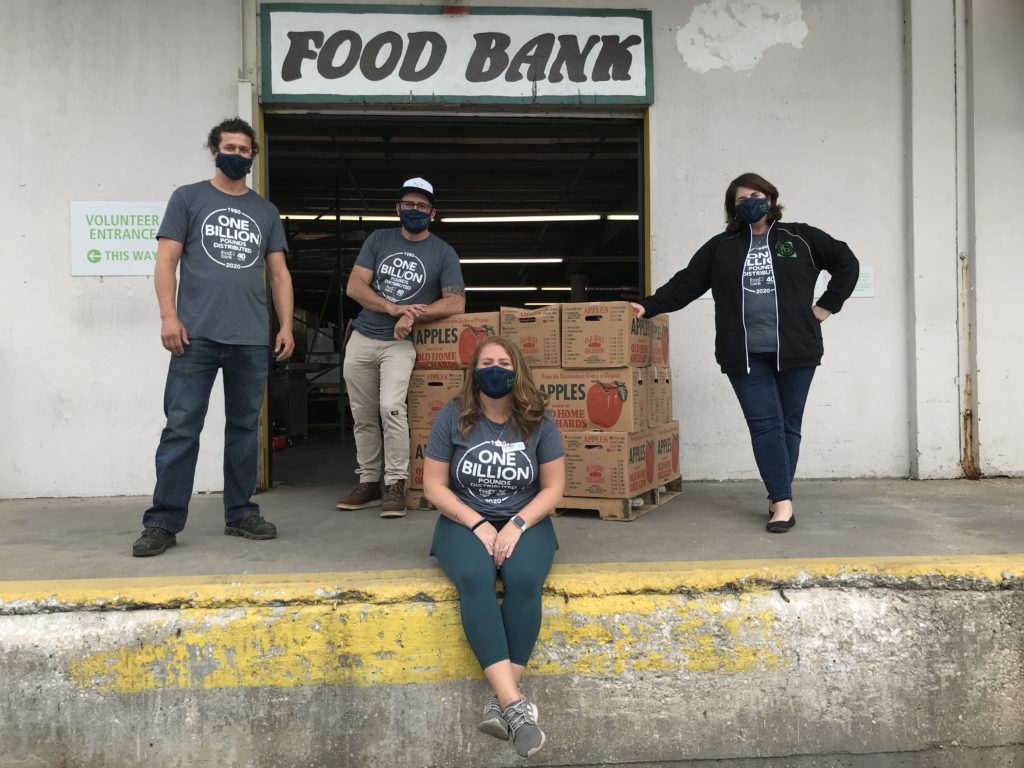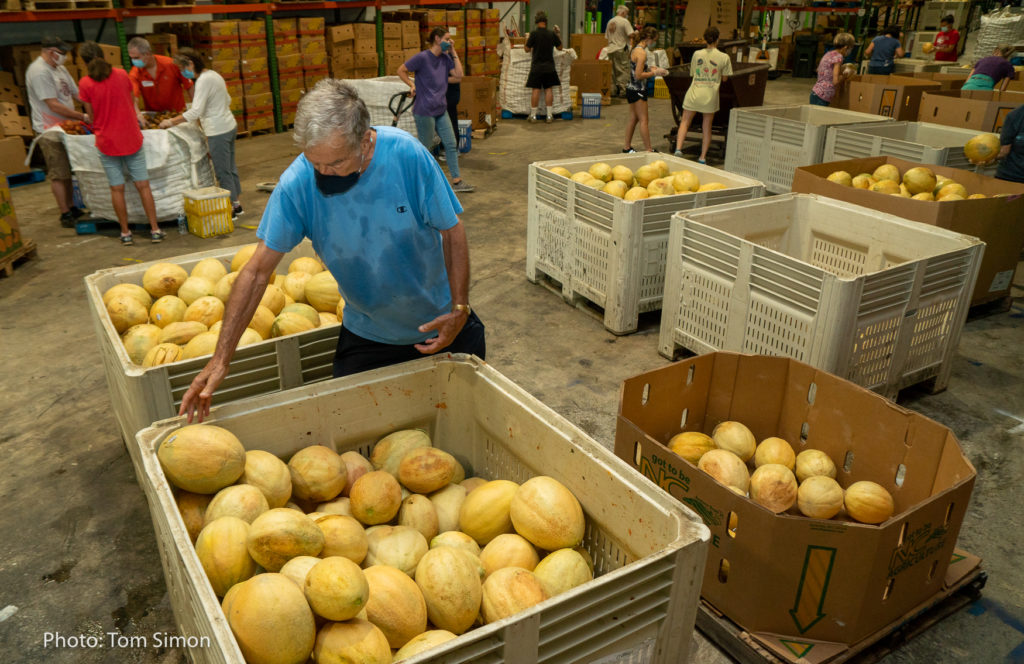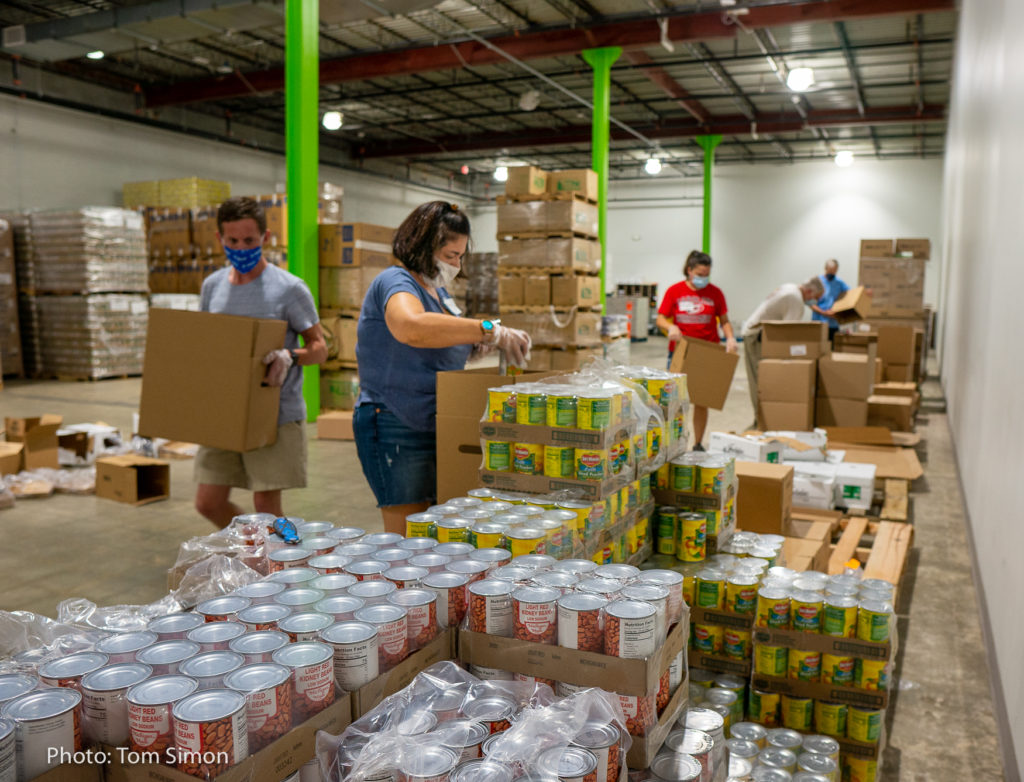Statewide Telehealth Implementation:
April 7, 2021Happy Campers
July 16, 2021
5 Ways to Prepare Your Nonprofit for Crisis
Nonprofits provide vital resources for our communities in the best of times, but what happens when we’re faced with the worst of times? As our friends, family, and neighbors try to find firm footing again, we need nonprofits to be a few steps ahead, clearing the path to higher ground.

The Food Bank of Central & Eastern North Carolina is leading this charge for its 34-county service area on the heels of the COVID-19 pandemic. Named Food Bank of the Year by Feeding America, the Raleigh-based nonprofit has distributed almost 159 million pounds of food (or 132 million meals) since March of 2020, the start of their pandemic response work.
To learn more, we spoke to Director of Communications Jessica Whichard, who also happens to convene the Food Bank’s disaster response and crisis planning efforts. Check out her five tips for effective crisis management:
-
Plan for the Unplanned
Jessica explains: “Don’t wait to get policies and paths of communication in place during a disaster when everything else goes by the wayside. It’s best to pre-plan and have something written out. We have a disaster manual that was created [with] a consultant.”
This manual even includes a succession plan specific to natural disasters, which the organization has navigated multiple times. For instance, the Food Bank details how to keep communication channels active if leadership’s homes are hit by storms.

-
Define and Refine
The Food Bank’s approach to crisis management is tried and tested (and then re-tested) to promote maximum efficiency when clients need their support most. Jessica notes that the manual is updated annually, and leadership conducts an after-action review to analyze lessons learned. Those lessons and an overview of the experience go straight into the manual.
The Food Bank also established a network of Disaster Relief Partners which includes approximately 200 of their 900 partner agencies. This group is equipped to intensify programming during a crisis and participates in yearly emergency response training.
-
Take One for the Team
After the initial rush of adrenaline subsides, it can be tough for frontline workers to muster the emotional and physical strength to keep showing up. The Food Bank strives to prevent staff burnout by:
- Sharing impact stories internally – gives the team an understanding of their community’s gratitude that can spur them on.
- Providing weekly meals – is a simple way to save the team precious time and personal resources.
- Offering additional PTO and hiring temporary staff – affords everyone the chance to rest, reflect, and recover.
- Valuing volunteers – keeps everyone protected. Many food pantry and soup kitchen volunteers are older and fall into the vulnerable population most susceptible to COVID-19. One crisis management lesson the Food Bank learned from 2020 is to have a succession plan in place for key volunteers.

-
Listen and Learn
This suggestion is twofold. First, Jessica notes the value in aggregating relevant data and using it to inform strategic plans. For instance, National data from Feeding America indicates that:
Food insecurity was only just starting to decline at a consistent rate following the Great Recession of 2008 when COVID-19 began.
12 years is a long time for people to stay hungry. The good news is that federal nutrition programs were launched during this period and then ramped up in 2020 to ease the burdens of the pandemic. Right now, the Food Bank’s baseline hunger numbers are still 30-40% higher compared to those of “pre-COVID” times (an improvement over the 75-100% increases reported by their partner agencies in Spring 2020).
The next reminder from Jessica is to create a two-way flow of information between the community you serve and your organization. She says: “It’s not going to help anybody if we’ve just decided on our own here in Raleigh how to push information out when it’s communities on the coast that are most impacted by [natural disasters] or marginalized communities that need support during COVID-19.”
In a crisis, nonprofits cannot become insular; they must prioritize their client base to mitigate wastefulness and inefficiency.
-
Be Mindful in the Calm Before the Storm
Feeding America took notice of the Food Bank for its service to the region during Hurricane Florence, which was catastrophic for Eastern North Carolina. When asked how the response to something like Florence compares with the pandemic, Jessica noted: “What we found in both scenarios is that the need increased right away and dramatically. The first step is determining how we ramp up food distribution to get it out immediately.”
During a natural disaster, damage is typically centralized, and staff coordinate with groups like the Red Cross and Salvation Army to assess and address need. With COVID-19, the relief work was simpler to orchestrate because people were safely contained at home, but the extent of the damage was crippling.
Although nobody can predict the future, everyone can play a role in covering a nonprofit’s bases.
Jessica stresses the importance of stewarding relationships and having an open-door policy in times of non-crisis. The Food Bank asks questions of its partners and factors them into capacity-building projects. The Food Bank also collaborates to pre-stage relief packages and equipment so agencies can intervene even faster.

It’s been a whirlwind of a year, and our communities are reeling. So where do we go from here? Take stock of your organization’s current succession plan and crisis management strategy. It’s not too late to implement Jessica’s tips for organizational health. And remember: preparing for the unexpected is possible, but it requires an investment of time, talent – and yes, resources.
Jessica assures us the upfront cost today is worth the peace of mind come tomorrow.
The Leon Levine Foundation is proud to have partnered with the Food Bank of Central and Eastern North Carolina. To date, the Foundation has awarded $150,000 in unrestricted support.
Interested in The Leon Levine Foundation’s work across the Carolinas? You can find a list of our legacy investments here. To learn more about funding requirements, click here.
